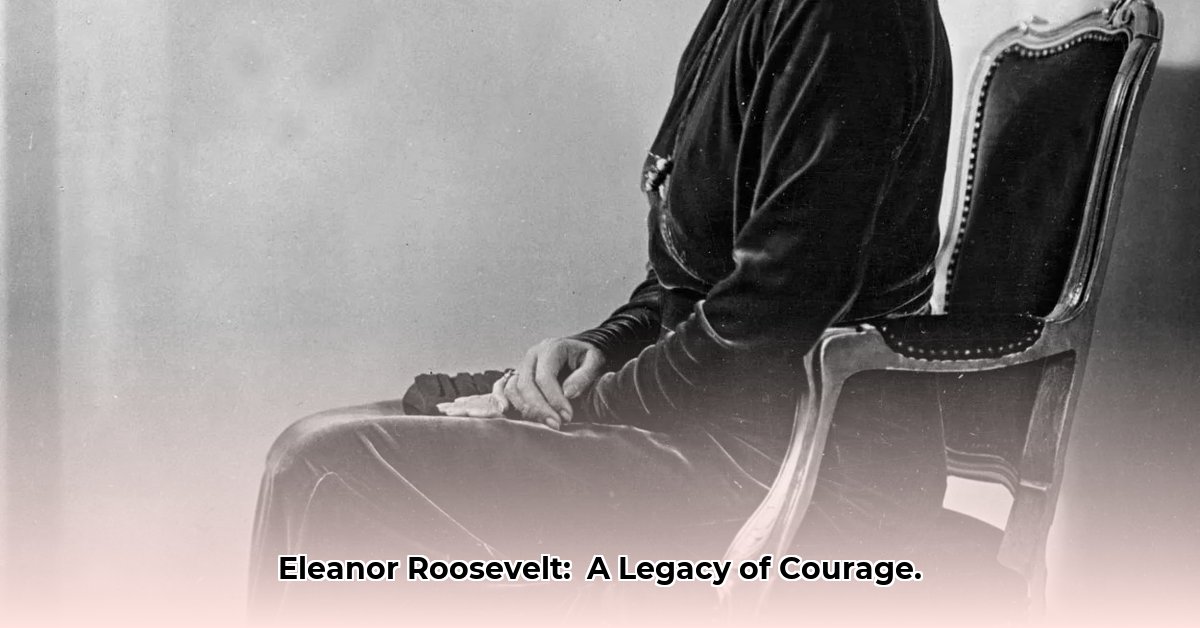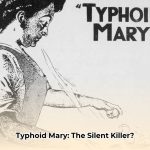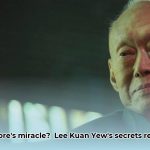Forget the traditional image of a First Lady. Eleanor Roosevelt shattered expectations, emerging as a powerful and enduring champion for human rights. More than just a historical figure, she was a catalyst for change, using her multifaceted platform to advocate for equality, social justice, and a world where every individual is treated with dignity. This is the story of how one woman redefined a role and inspired generations. Leaders like Nelson Mandela also showed similar dedication to fighting for justice, see his story.
Eleanor Roosevelt: Redefining the First Lady and Championing Universal Rights
Eleanor Roosevelt’s name evokes courage, integrity, and an unwavering commitment to justice. She transcended the traditional role of First Lady, becoming a global leader in the fight for human rights and social progress. Her journey, marked by both triumphs and profound challenges, continues to inspire today.
From Privilege to Social Justice: Embracing Empathy
Born into a world of wealth and social standing, Eleanor Roosevelt’s early life was also punctuated by personal loss and hardship. These experiences profoundly shaped her worldview, fostering deep empathy for those less fortunate. While privilege afforded her certain advantages, it also provided a stark contrast to the struggles faced by many, fueling her dedication to social justice.
Her understanding of both privilege and adversity ignited a lifelong commitment to creating a more equitable world. She confronted poverty and injustice head-on, demonstrating that a life of privilege does not preclude recognizing and addressing the pain and suffering of others.
The Architect of Human Rights: Crafting the Universal Declaration
Eleanor Roosevelt’s pivotal role in drafting the Universal Declaration of Human Rights (UDHR) stands as one of her crowning achievements. As chair of the UN Human Rights Commission, she skillfully navigated complex political landscapes to forge consensus around a document that enshrines the fundamental rights and freedoms of all individuals. Her tireless efforts ensured that the UDHR not only came into being but also possessed the strength and clarity needed to effect real change.
The UDHR has become a cornerstone of international law, serving as a blueprint for human rights protections around the globe. Many historians suggest that her personal experiences with discrimination and marginalization fueled her passionate advocacy for the UDHR’s provisions, particularly those relating to equality and freedom from discrimination. Today, the UDHR influences various charters and laws within nearly all nations.
Action Beyond the White House: Civil Rights and Social Justice
Eleanor Roosevelt refused to confine herself to the ceremonial duties of the First Lady. She actively sought out and bore witness to the struggles of marginalized communities, visiting forgotten corners of the nation to see firsthand the poverty and discrimination that plagued so many lives. These experiences served as potent fuel for her activism, driving her to challenge the status quo and advocate for systemic change.
Her unwavering commitment to racial equality became a hallmark of her legacy. At a time of intense racial prejudice, she fearlessly championed civil rights, advocating for equal opportunities and challenging discriminatory practices. This unwavering stance reflected her deep understanding that true freedom could not exist as long as any segment of society was denied basic human rights.
Mastering the Message: Words as Instruments of Change
Eleanor Roosevelt recognized the transformative power of communication. Her newspaper column, “My Day,” became a vital link between the White House and the American people. She used it to share personal stories, dissect complex issues, and galvanize support for her causes. It wasn’t just about informing; it was about forging connections, building empathy, and shaping public discourse. She transformed “My Day” into a platform to discuss important social issues, skillfully influencing the political landscape through its narrative.
Her press conferences were groundbreaking, characterized by their accessibility and candor. She engaged directly with journalists, answering difficult questions with honesty and transparency. This open approach fostered trust and demonstrated that leadership could be both powerful and approachable.
Acknowledging Complexity: Light, Shadow and Nuance
Even a figure as universally admired as Eleanor Roosevelt faced criticism and controversy. Some questioned the extent of her influence on her husband’s policies, while others scrutinized her personal relationships. However, even her detractors acknowledged her relentless dedication to her causes and her unwavering commitment to social justice.
Her life was not a flawless narrative but a complex tapestry of struggles, triumphs, and a constant striving for a better world. Her story underscores the importance of acknowledging human imperfections while celebrating the positive impact individuals can have on society. Ongoing research continues to explore various aspects of her life and legacy, leading to evolving interpretations and understanding. It is important to acknowledge that there may be different perspectives on certain events and decisions in her life.
Enduring Inspiration: A Legacy of Social Justice
Eleanor Roosevelt’s life serves as an enduring source of inspiration for all who believe in the power of social justice. Her courage, compassion, and unwavering commitment to human rights remain a beacon, reminding us that one person can indeed make a profound difference in the world. Her story is a call to action, challenging each of us to consider how we, too, can contribute to building a more just and equitable society. Her legacy continues to encourage progress and inspires action towards a more just society. The ongoing conversation surrounding her life and actions proves that her impact transcends time, even as our understanding of her evolves based on new research and perspectives.
- Champion of the Underrepresented: As First Lady, she amplified the voices of marginalized groups, influencing policy and shaping public opinion.
- Architect of Human Rights: Her leadership in drafting the Universal Declaration of Human Rights solidified her legacy as a champion for global human dignity.
- Master Communicator: Through her writing and public speaking, she connected with millions, fostering empathy and inspiring action for social change.
Eleanor Roosevelt’s Media Strategies: Shaping Public Discourse and the First Lady Image
Eleanor Roosevelt was more than just a First Lady; she was a media pioneer, skillfully utilizing newspapers, radio, and eventually television to reshape public discourse and advance her tireless work for social justice.
A Voice for the Voiceless: Redefining a Role
Before Eleanor, the First Lady’s role was largely ceremonial. She upended this tradition. Roosevelt recognized the power of direct communication, penning a daily newspaper column, “My Day,” that reached millions. This unprecedented access allowed her to share her thoughts, experiences, and policy proposals directly with the public, bypassing traditional political channels. This was groundbreaking. Imagine the impact of a daily column from the White House in the pre-internet age!
Her columns humanized policy discussions, detailing the struggles of everyday Americans and showcasing individuals whose stories highlighted the human cost of poverty and inequality. This fostered empathy and bolstered public support for the New Deal programs she championed. This was not mere advocacy but a masterclass in narrative power. The column ran from 1936 to 1962, amassing millions of readers. Readers could relate to her stories and she offered solutions that were easy to understand.
Radio and the Spoken Word: Amplifying Reform
Roosevelt embraced radio, speaking directly to the nation. Her soothing yet authoritative tone cut through political rhetoric, connecting with listeners on an emotional level. Unlike many politicians of her time, she addressed difficult topics with frankness and vulnerability – traits rare in public figures. These radio addresses weren’t just speeches; they were intimate conversations that helped shape public attitudes and expectations around government responsibility. She used these talks to explain complex issues in a way listeners could understand and digest. It’s estimated she delivered approximately 43 radio broadcasts between 1933 and 1945. She talked about the importance of voting, social programs, and how to get involved.
Visual Presence: Impact on Social Progress
As television gained prominence, Roosevelt adapted her strategy. She recognized its power to engage viewers visually, expanding her reach even further. Her appearances were more than mere image; they were opportunities for deeper engagement, showcasing her passion and compassion in ways that continue to resonate. Viewers also felt as if they could relate to her, unlike previous highly formal first ladies.
Building Relationships and Shifting Paradigms
Roosevelt understood that media is about building relationships. Her consistent, empathetic communication fostered trust, which was crucial in galvanizing support for her initiatives. Her media strategies weren’t just clever tactics; they represented a new form of political engagement, blurring the lines between the formal and the informal, the public and the private.
- Newspaper Power: “My Day” provided daily, direct access to the public, showcasing personal stories and policy proposals.
- Radio Connection: Radio addresses created an intimate connection with the American public, shaping attitudes and expectations.
- Adaptable Strategy: She adapted her communication style to new media, ensuring her message continued to resonate.
Shaping Public Opinion: Eleanor Roosevelt’s Media Strategies and Action
Eleanor Roosevelt was a social innovator, skillfully wielding the power of media to shape public opinion, advance progressive ideals, and foster a deeper understanding of human rights. Her communication strategies offer valuable lessons for today’s advocates.
The Press: Narratives and Policy Reform
Eleanor Roosevelt understood the power of the written word. Her syndicated newspaper column, “My Day,” reached millions, becoming a platform to discuss social injustices, international affairs, and connect directly with the American public. Consider it the precursor to modern social media but with far greater influence. She anticipated the impact, carefully choosing words to inspire and inform. The column addressed domestic issues, international affairs, and personal reflections, deeply influencing its readership.
Radio: Empathy Factor
Roosevelt became a skilled orator, a voice on the radio that resonated deeply. Her broadcasts weren’t dry policy announcements but compelling narratives that humanized complex issues, making them relatable to ordinary citizens. This was a game changer. Success hinged on effectively leveraging broadcasting power. Imagine her warm tone and clear articulation transforming hearts and minds, building a trusting relationship with millions of listeners. It is estimated that in the late 1930s, approximately one-third of American households tuned into her broadcasts. More and more people became informed and wanted to know what they could do to help.
Beyond the White House: Diplomacy
Roosevelt wasn’t confined to the White House. She traveled extensively, meeting with ordinary people, leaders, and activists, always advocating for social justice. Her actions spoke louder than words, and the media diligently documented these efforts. These trips shaped public opinion by showcasing her commitment to global human rights, she was also accessible.
Navigating Resistance: Challenges and Social Progress
Roosevelt’s progressive views weren’t universally accepted, yet she persevered. Her unwavering commitment to her beliefs, communicated through her media outlets, demonstrates remarkable resilience, which in turn inspired others. Her willingness to speak truth to power and advocate for the marginalized became a powerful symbol of hope. Instead of giving in, she doubled down and became more determined.
A Lasting Influence: Shaping the Future Through Advocacy
Roosevelt’s influence is undeniable; her work laid the groundwork for many progressive movements. Her legacy continues to inspire activists and policymakers today, demonstrating that effective communication is a cornerstone of social change. Her actions show profound belief in human rights and social justice, and her methods are a blueprint for effective advocacy. We can learn a lot from her and apply the same principles to our modern world.
- Direct Communication: Connect with the public through accessible media channels.
- Humanize Issues: Frame complex issues in relatable narratives.
- Embrace Advocacy: Advocate for social justice, even in the face of opposition.
Eleanor Roosevelt and the Redefinition of the First Lady: Impact and Legacy
Eleanor Roosevelt dramatically reshaped the role of First Lady, transforming it from a largely ceremonial position into one of active political engagement and social advocacy. Her commitment to human rights and social reform led to significant contributions to the Universal Declaration of Human Rights and enduring changes in American social programs.
Breaking Barriers: A Role Model
Before Eleanor Roosevelt, the First Lady’s role was largely defined by social graces. Eleanor shattered those expectations, actively shaping policy. While she didn’t always succeed, her willingness to challenge norms was groundbreaking, permanently redefining the role. Roosevelt’s influence spanned the 1930s and 1940s, changing expectations of the First Lady. She was a role model and showed women they could be so much more.
Global Human Rights
Eleanor’s passion for human rights extended far beyond American borders. Her pivotal role in drafting the Universal Declaration of Human Rights is testament to her global vision. Informed by her deep understanding of the plight of the oppressed, this document became a cornerstone of international human rights law. She saw the interconnectedness of human dignity as an idea.
Social Programs: The New Deal
The Great Depression shaped Eleanor profoundly, giving a firsthand look at hardship. This fueled her commitment to social reform, leading her to advocate tirelessly for New Deal programs. Think about the impact of her work on countless families; approximately 13 million people were unemployed in 1933, spurring New Deal programs and sparking Roosevelt’s social activism. She made a difference in real people’s lives.
Challenging Norms: Activism
Eleanor’s story is about more than policy; it’s about challenging societal norms and using one’s influence to improve the lives of others. Her work continues to inspire people to fight for social justice. Her personal convictions were powerful.
Personal Strength
Eleanor wasn’t without her critics. Some found her activism excessive for a First Lady, yet she persevered. Her unwavering commitment to her beliefs ultimately shaped a stronger, more just society. Her legacy is a testament to the power of perseverance in the face of adversity. The complexities of her personal life add further layers to understanding her. She was strong in the face of adversity.
- Redefined Role: Transformed the First Lady from ceremonial to politically active.
- Championed Human Rights: Pivotal in drafting the Universal Declaration of Human Rights.
- Advocated Social Programs: Supported New Deal programs to alleviate poverty.
- The Accidental Breakthrough: Penicillin’s Discovery and Impact - August 1, 2025
- Medieval Universities: Shaping Modern Academia - August 1, 2025
- The Radium Girls: Workplace Safety Lessons from a Tragic Past - August 1, 2025
















